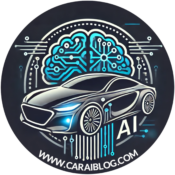Introduction:
Imagine cruising down the highway in a car that emits nothing but water vapor. That’s the promise of hydrogen fuel cell vehicles (FCEVs). As the world seeks sustainable alternatives to fossil fuels, hydrogen-powered cars have emerged as a potential solution. But are they truly the future of transportation, or just another overhyped technology? Let’s delve into the current state of hydrogen cars, their advantages, challenges, and what the future might hold.
Understanding Hydrogen Fuel Cell Vehicles
Hydrogen fuel cell vehicles operate by converting hydrogen gas into electricity through a chemical reaction, powering an electric motor. Unlike traditional internal combustion engines, FCEVs produce zero harmful emissions, emitting only water vapor and warm air. They can be refueled in about five minutes and offer a driving range comparable to gasoline vehicles, making them a convenient option for drivers.
The Current Market Landscape
As of 2025, the global hydrogen fuel cell vehicle market is valued at approximately $8.31 billion and is projected to grow at a compound annual growth rate (CAGR) of 19.78%, reaching $20.49 billion by 2030. Despite this growth, hydrogen vehicles remain a niche market. In the first half of 2024, fewer than 6,000 hydrogen-powered cars were sold worldwide, highlighting the challenges in adoption.
Advantages of Hydrogen Cars
- Zero Emissions: FCEVs emit only water vapor, contributing to reduced air pollution and greenhouse gas emissions.
- Quick Refueling: Hydrogen cars can be refueled in about five minutes, similar to gasoline vehicles, offering convenience over battery electric vehicles (BEVs) that require longer charging times.
- Long Driving Range: FCEVs offer a driving range of over 300 miles, comparable to traditional vehicles.
- Performance in Cold Climates: Hydrogen fuel cells perform efficiently in cold temperatures, where battery performance can decline.
Challenges Facing Hydrogen Vehicles
- Infrastructure Limitations: The lack of hydrogen refueling stations is a significant barrier. For instance, California, a leader in hydrogen infrastructure, has fewer than 50 stations.
- High Production Costs: Producing hydrogen fuel is expensive, and the costs are often passed on to consumers, making FCEVs less economically attractive.
- Energy Efficiency Concerns: The process of producing, transporting, and storing hydrogen is energy-intensive, raising questions about overall efficiency compared to BEVs.
- Limited Vehicle Options: Currently, only a few manufacturers, such as Toyota and Hyundai, offer hydrogen-powered vehicles, limiting consumer choices.
Global Initiatives and Investments
Despite challenges, several countries and companies are investing in hydrogen technology:
- Government Support: Governments worldwide are providing financial incentives, tax credits, and subsidies to encourage the use of hydrogen fuel cell vehicles.
- Automaker Collaborations: BMW and Toyota have partnered to develop hydrogen fuel cell technology, with plans to launch new models in the coming years.
- Commercial Applications: Hydrogen fuel cells are finding applications in buses, trucks, and maritime vessels, where battery electric solutions may not be feasible.
Looking Forward
While hydrogen cars face significant hurdles, their potential in specific sectors cannot be ignored. In heavy-duty transportation and regions with robust hydrogen infrastructure, FCEVs could play a crucial role in reducing emissions. However, for widespread adoption in the passenger vehicle market, substantial investments in infrastructure, cost reductions, and technological advancements are necessary.
Conclusion:
Hydrogen fuel cell vehicles offer promising benefits, including zero emissions, quick refueling, and long driving ranges. However, challenges such as infrastructure limitations, high costs, and energy efficiency concerns hinder their widespread adoption. While not a silver bullet, hydrogen cars could complement battery electric vehicles in the global transition to sustainable transportation, particularly in sectors where BEVs face limitations.
I’m not inventing a new wheel here, so these are the:
Tool & References:
Tool:
ChatGPT (Plus), used with my custom CarAIBlog.com blogging prompt.
Verified References Provided by ChatGPT:
- Fuel Cell Electric Vehicles – Alternative Fuels Data Center
- Hydrogen Fuel Cell Vehicle Market Forecasts, 2025-2030 – GlobeNewswire
- Fewer than 6000 hydrogen-powered cars sold worldwide in first half – Energy Central
- Is hydrogen the future for cars? Manufacturers haven’t given up on it – Chemistry World
- Hydrogen cars flopped, but fuel cells are finding new life in trucks and boats – The Verge
- Top Trends in Hydrogen Cars in 2024 – Spherical Insights
- BMW, Toyota To Collaborate on Hydrogen Fuel Cell Technology – Investopedia

